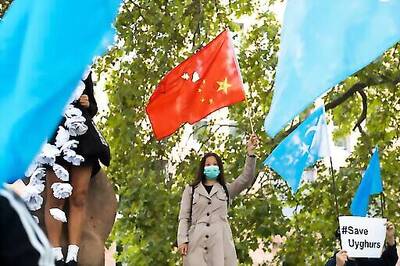
views
RICHMOND, Va.: A university in the former capital of the Confederacy will remove building names, plaques and other symbols that honor several Confederate supporters.
The board of visitors at Virginia Commonwealth University in Richmond voted unanimously on Friday to remove 16 different references on campus. While the decision marks the latest action this year in Richmond and elsewhere to take down remembrances of the Confederacy, VCUs action was nearly three years in the making, the Richmond Times-Dispatch reported.
School President Michael Rao formed a committee in 2017 to accumulate building names, busts, portraits and plaques that honor Confederate supporters, research their histories and begin discussions.
A new committee was created in 2019 and tasked with making a recommendation to Rao. It gathered 3,000 public comments. This summer, when Confederate monuments in the city and elsewhere were toppled or removed following the death of George Floyd, the committee made its recommendation.
The VCU memorial landscape is dominated by ex-Confederates or those people who sought to perpetuate and revere the memory of the Confederacy, currently represented in the form of dedicated spaces, memorial names, plaques and statues, VCU history professor Kathryn Shively said.
Rao backed the boards move, saying VCU rightfully serves all human beings and we must be dedicated to the truth.
The decision will strip the name Ginter from a VCU building located and remove the words Dooley Hospital from a threshold that still exists where a hospital once stood. Ginter refers to cigarette magnate Lewis Ginter, who at his death in 1897 left money for charities and public institutions. He fought for the Confederacy, becoming a major.
Dooley references James Dooley, also a Confederate soldier who died in 1922. He served in the General Assembly, helped oversee railroad expansion nationwide and left his home to the city.
Board member Peter Farrell said the decision wasnt meant to disparage the mens work in the city, but rather it’s about how the school looks at history and the role the Confederacy plays on the campus.
Disclaimer: This post has been auto-published from an agency feed without any modifications to the text and has not been reviewed by an editor




















Comments
0 comment